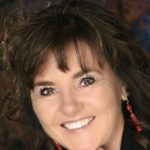 “For a couple of years, I had a big flipping mess.” That’s how Kim Fraser describes the manuscript that would become her book, The Accidental Caregiver: Wisdom and Guidance for the Unexpected Challenges of Family Caregiving.
“For a couple of years, I had a big flipping mess.” That’s how Kim Fraser describes the manuscript that would become her book, The Accidental Caregiver: Wisdom and Guidance for the Unexpected Challenges of Family Caregiving.
Published by Sutherland House, the book was released in November 2022—after Fraser whipped it into shape with the help of the King’s MFA in Creative Nonfiction and independent editor Brenda Copeland, whom she hired for the task.
Fraser, who has taught nursing at the University of Alberta and was co-owner of a home care company in Edmonton, has done extensive research into caregiving, and published some 80 academic papers. But she wanted to write a book that would be helpful to people who find themselves thrust into a caregiving role.
“This whole area of family caregiving, home care, elder care, looking at policies related to caring for others, was what I did for years. I had published academically in journals, but I really wanted to have a book that was accessible to the public. Because who really cares if I’m writing for other academics?” Fraser says.
She heard about the MFA program, immediately emailed founding Executive Director Don Sedgwick, and realized she had to apply. “I just felt that I was buried. I needed help on how to do this. I knew nothing about the general publishing industry. I was accepted into the program within a month or two of hearing about it, and it just kind of clicked.”
In her research, Fraser spoke with dozens of families caring for loved ones. Nine of them feature in the book. She says getting people to open up about their caregiving experiences is not difficult, because they are often desperate to share what they are going through. Over the years, caregivers would also approach her for information.
“Because I’m a nurse, and because I worked in this field forever, I get asked lots of questions about how to access services, have access to information, and I find myself coaching people quite regularly—because people are really hungry for information, and our governments are not very good at putting a billboard out there telling them what’s available, how to get it, and what kinds of questions to ask.” Those were all themes she set out to address in the book.
Fraser also had personal experience supporting her parents when her father needed care at home. And then, while writing the book, her husband, Don, was diagnosed with an aggressive form of prostate cancer. Fraser says, “A lot of the things that I talk about in the book I went through. Like looking for information—where do I find the information we need, and how do we discern it? How do I tell people what I need?” She remembers thinking, “Oh my God, I do not want to be in this situation. I don’t want to be thinking about this stuff that I wrote about.”
Now that The Accidental Caregiver has been published, Fraser is working on a companion volume, a workbook she describes as a guide to “going from accidental to intentional.”
With an aging population, family caregiving is “a timely issue and a timeless issue, and it’s not going to go away,” Fraser says. “I advocate for systems that support family caregivers… We’ve got to support them to keep them well and keep them healthy.”

